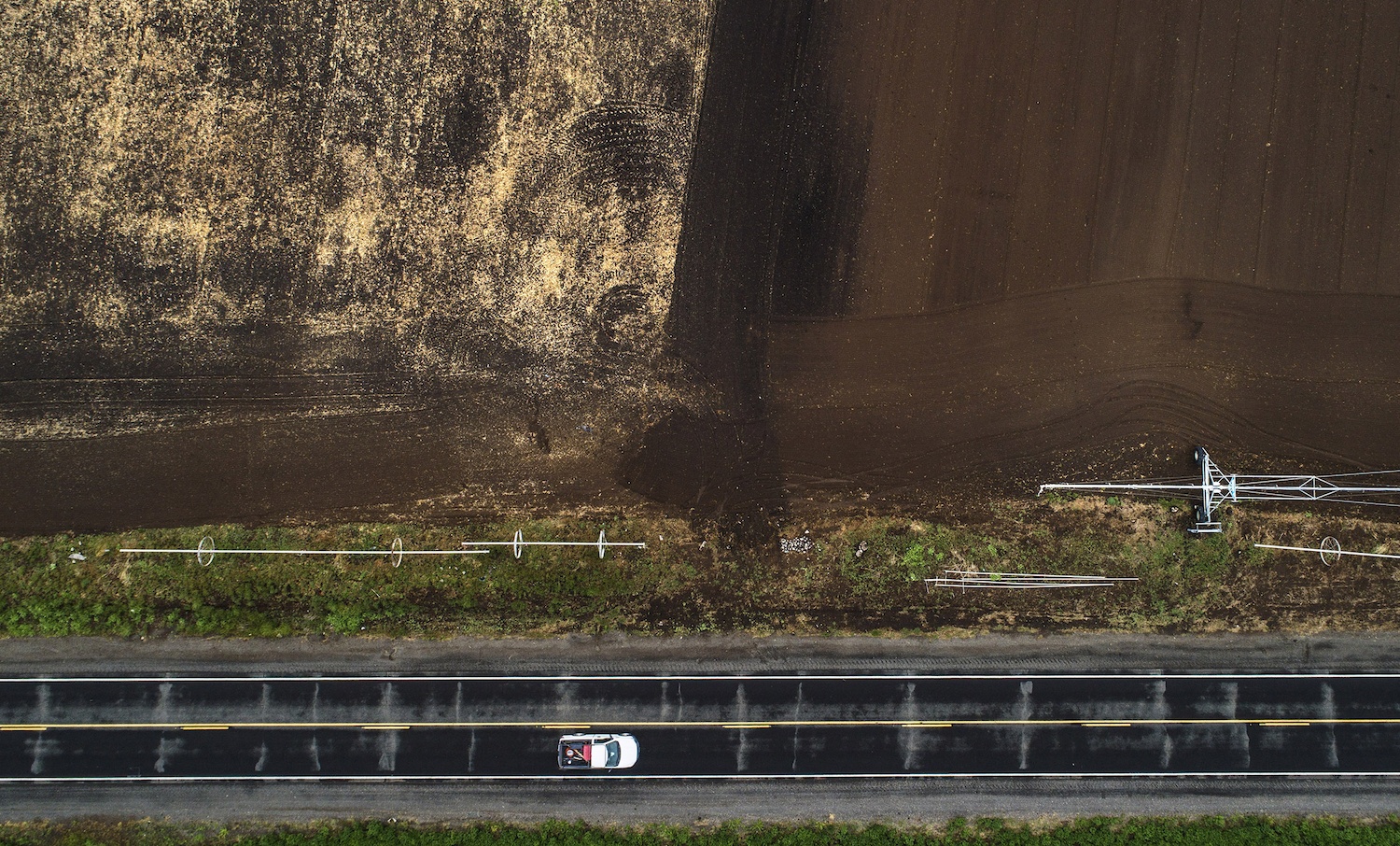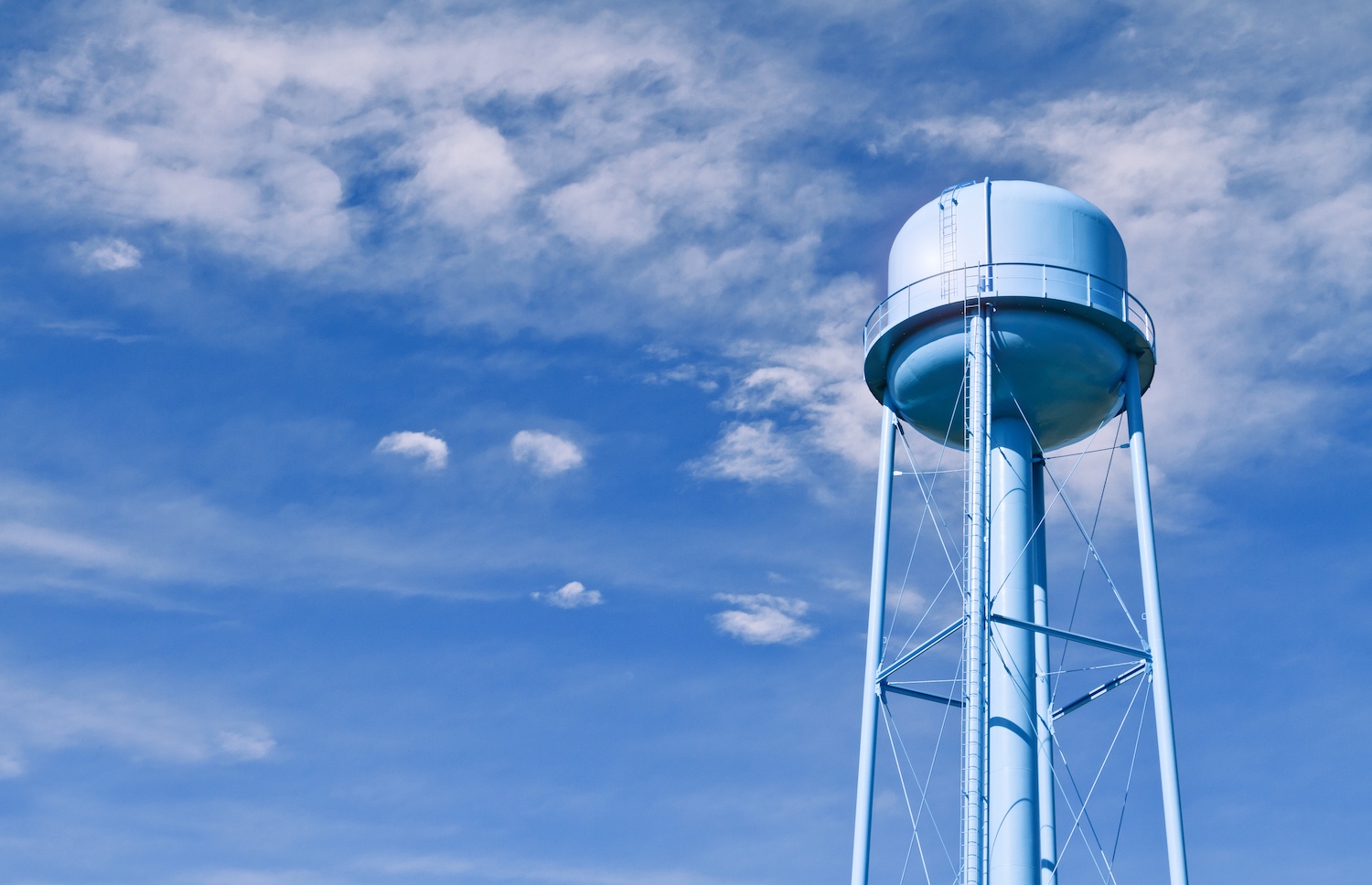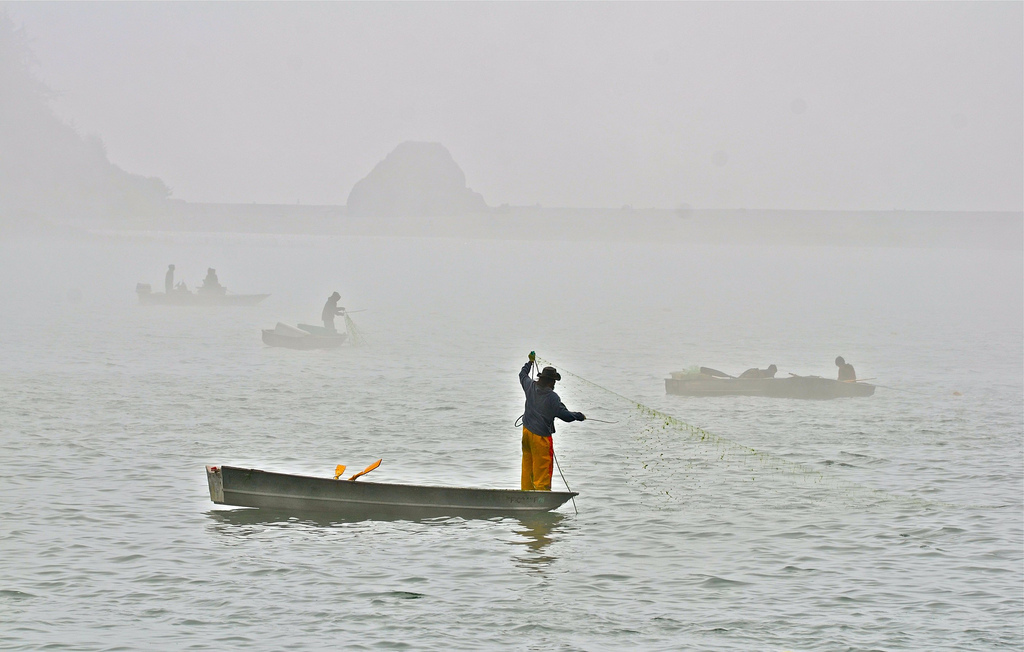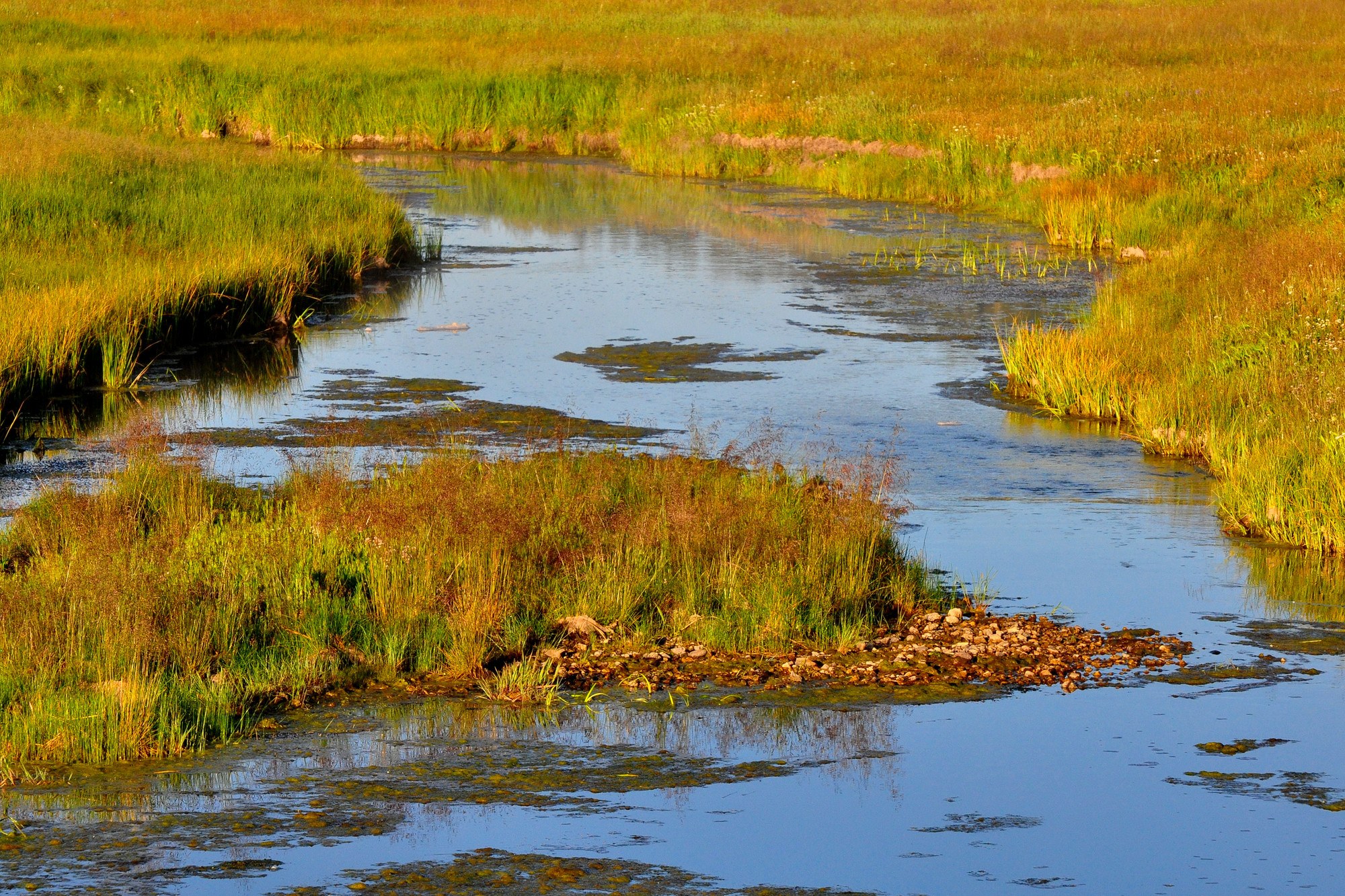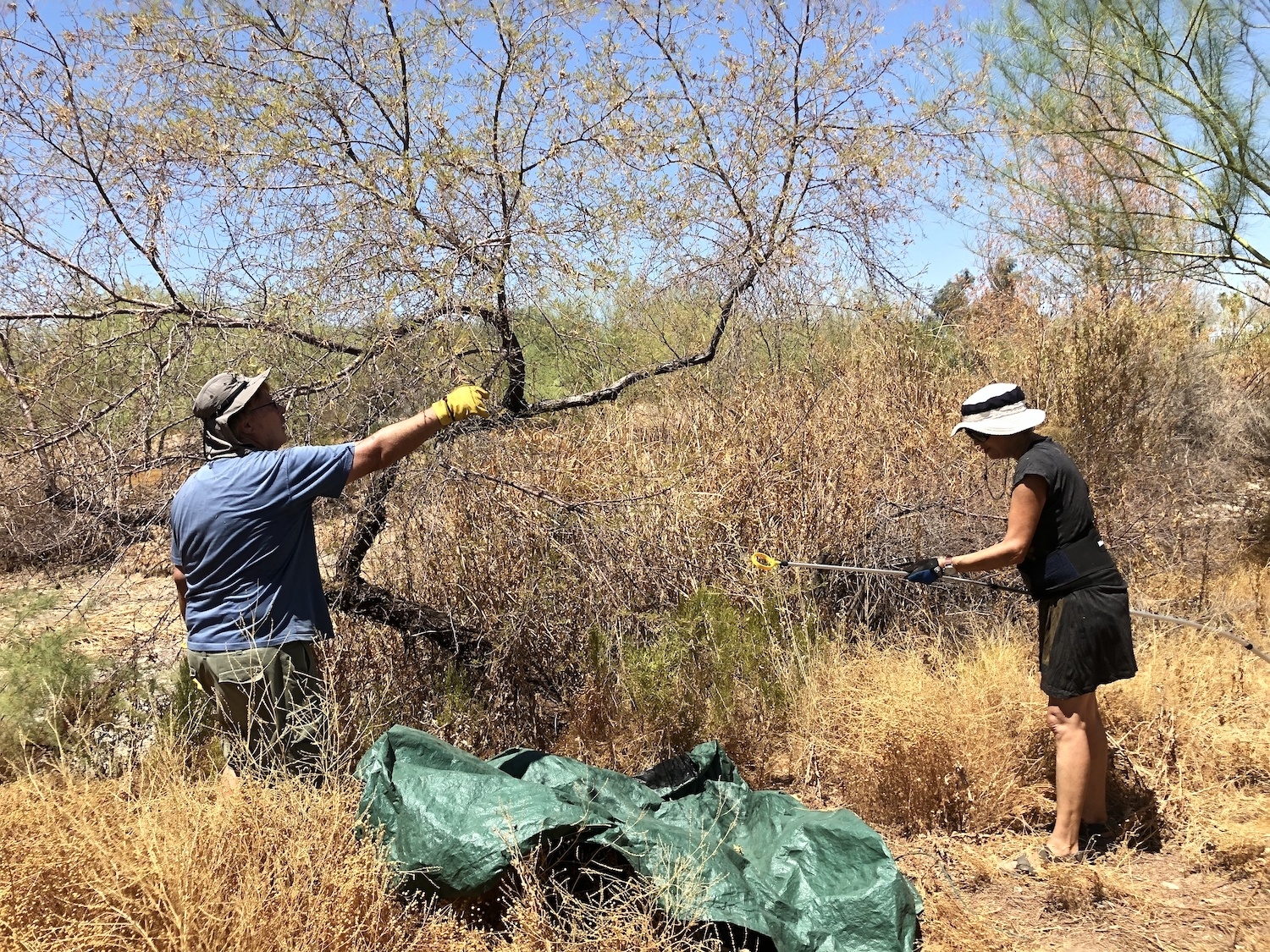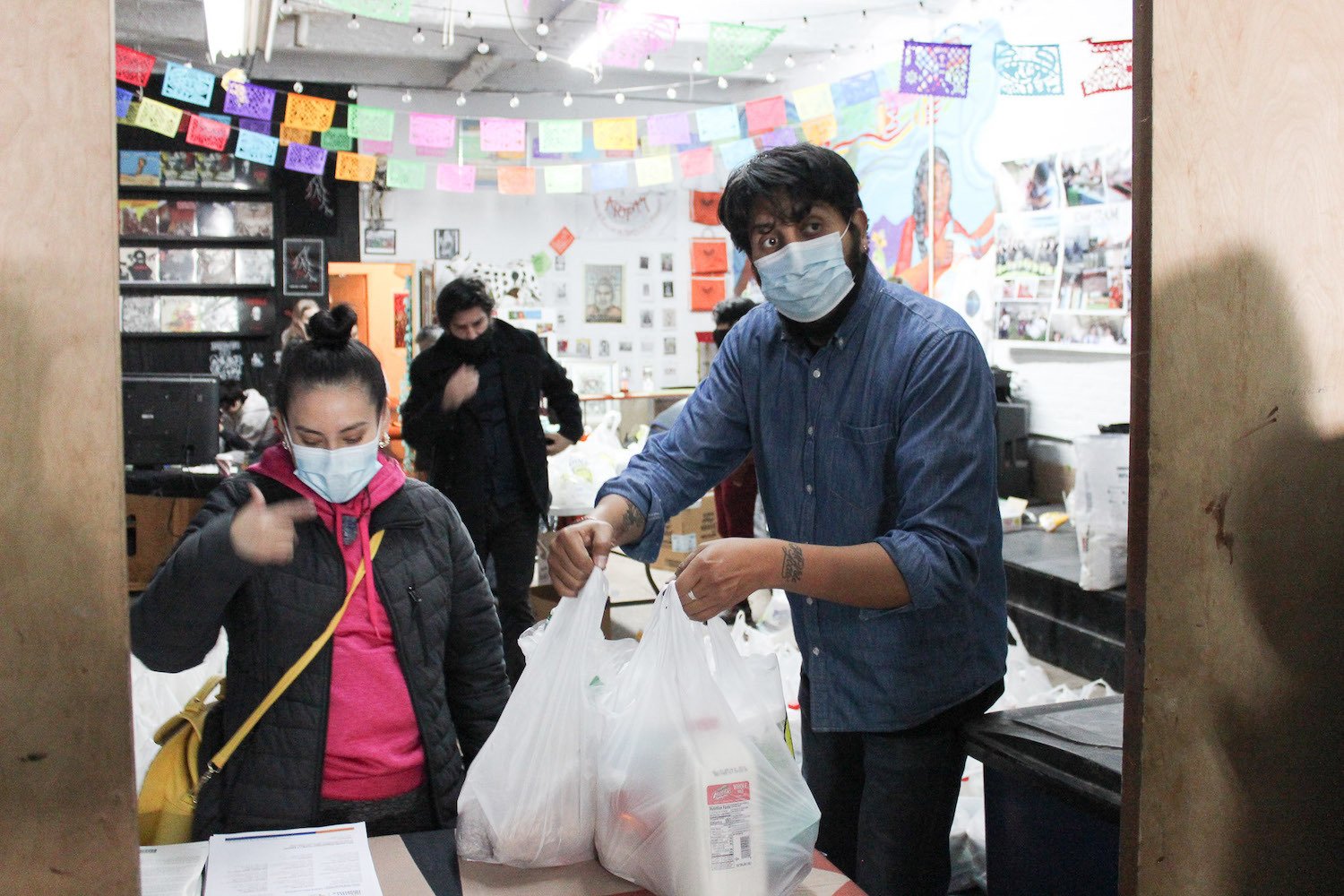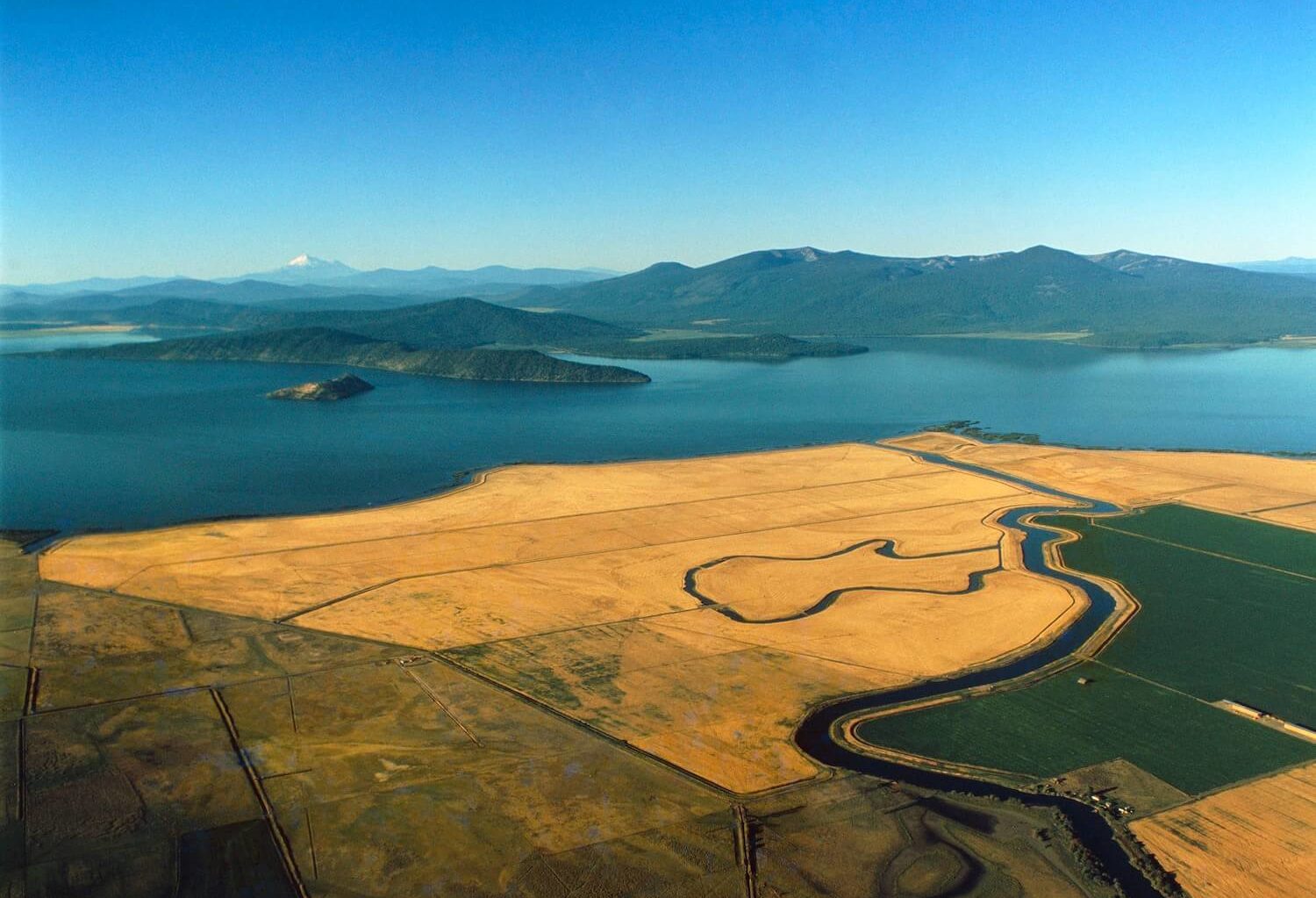
DeAgostini/Getty Images
The federal government is trying to preserve scarce water resources to ensure the survival of fisheries important to tribal nations. Farmers are calling on local irrigators to release it anyway.
Just one month ago, the Bureau of Reclamation (USBR) announced that it would make the lowest-ever annual release of irrigated water to farmers in the Klamath River Basin this year due to drought. Last week, the agency delivered another blow: Conditions had gotten worse in the time since the announcement, and it would actually have to shut down the region’s main irrigation canal altogether.
“We have closely monitored the water conditions in the area,” said USBR deputy commissioner Camille Calimlim Touton in a press release, referring to a significant reduction in the amount of water that experts estimate will flow into the Upper Klamath Lake. “This has resulted in the historic consequence of not being able to operate a majority of the Klamath Project this year.”
Emotions have been running high in the basin in the past few weeks. The region’s biggest reservoir, the Upper Klamath Lake, saw low inflows this year due to drought and low snowpack melt. The scarcity has pitted different interests in the region against one another, despite past efforts to strike a compromise on the shared use of limited resources: The Klamath Tribes are fighting to maintain minimum water levels in the lake to preserve endangered fish, tribes downstream are demanding river flows from the lake to preserve salmon, and farmers are thirsty for water diversions to their irrigation canals.
“There’s a background of conservative politics that places priority on private property rights-based solutions, on top of a simmering racism that has constrained tribal interests for over a hundred years.”
A day after USBR’s announcement, a group of irrigators staged a protest outside the office of the Klamath Irrigation District—one of the entities contracted to deliver water in the region—demanding that it release water against the federal government’s directives, according to a report by Herald and News. Among participants were members of People’s Rights Oregon 6, a local chapter of the far-right militia network founded by Ammon Bundy, who is known for his role in leading the 2016 takeover of the Malheur National Wildlife Refuge in Oregon.
Now, it appears that other groups in the region are worried that tensions in the area may continue to rise in the wake of USBR’s latest announcement, with potential risk of violence. On Wednesday, the Klamath Water Users Association, which represents farmers, called on its supporters to “stop intimidating and inappropriate behaviors.” In its letter, the group referenced reports of USBR employees getting doxxed and concerns that people were being recruited across the country for more protests this summer. In a phone interview, the group declined to specify individual instances of doxxing and recruitment, but suggested that the lack of irrigation water had turned the area into something of a tinderbox.
“The change in information [and] the uncertainty added to the difficult atmosphere,” said Paul Simmons, executive director of the association. “We just want to have a peaceful summer.”
The federal government has set aside $25 million in relief funds for irrigators. In addition, farmers who participate in crop insurance or disaster assistance programs may also recoup some of their costs through those avenues.
This year’s historically low allocation has already pushed some irrigators to take matters into their own hands and secure the water they need. In last week’s announcement, USBR partially attributed its reduction in water releases to “unauthorized diversions at private facilities.” The release didn’t specify any particular entity behind the diversions. Last month, we reported that at least one district contracted to deliver water in the region had begun to release water to farmers in a move USBR called unlawful. The move was also denounced immediately by Indigenous communities and fisheries downstream.
Under the Endangered Species Act, USBR is required to maintain minimum water thresholds in the Upper Klamath Lake to ensure the recovery of the C’waam and Koptu suckerfish, which are spiritually important species for the Klamath Tribes. USBR is also bound to maintain minimum flows in the Klamath River to sustain salmon populations, which are significant for both the Klamath Tribes and tribes downriver, as well as commercial fisheries.
“There’s not like a silver bullet solution to find water and to get everybody the water that they need.”
Last Saturday, the Klamath Tribes held its own protest in an attempt to raise awareness about the ecological and spiritual toll that the water crisis posed to the tribal nation. Don Gentry, chairman of the Tribes, said that the rally was also an attempt to push back against a prevailing narrative that preservation of suckerfish is less important than agricultural interests. Farmers often rail against USBR’s obligations under the Endangered Species Act as a myopic form of “single species management” that puts their needs on the back burner, which Gentry finds unfair.
“We feel marginalized in our own homeland,” he said. “We’re basically standing up for what we believe we need to stand up for, the things that should be here and the health of the ecosystem and sustainable use of our natural resources …. Some people perceive us as the problem or fish as the problem.”
Some say that the fight over scarce water resources in the region today can’t be isolated from the history of the Klamath irrigation project, which was made possible in part due to the U.S.’s historic dispossession of Indigenous people from land and natural resources. That painful past may now be colliding with prevailing political leanings in the area, as well as anxieties among farmers about the future of their livelihoods.
“There’s a lot of reasons why the Klamath is the hotbed that it is,” said Brian Chaffin, associate professor of water policy at the University of Montana, who has conducted research on water governance in the Klamath River Basin. “There’s a background of conservative politics that places priority on private property rights-based solutions, on top of a simmering racism that has constrained tribal interests for over a hundred years, on top of a legitimate fear that there will not be enough water to sustain the level of agriculture that has more recently been there.”
This confluence is now forcing stakeholders to view the fight for water as a sort of zero-sum game. And conditions like severe drought, which are only expected to become increasingly frequent as the climate crisis is exacerbated, suggest that the pressure might not let up any time soon.
“There’s not like a silver bullet solution to find water and to get everybody the water that they need.”

